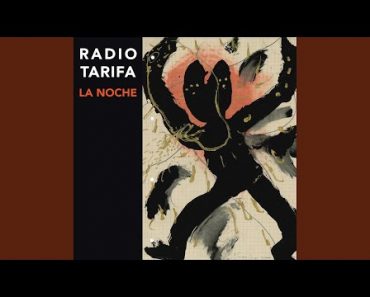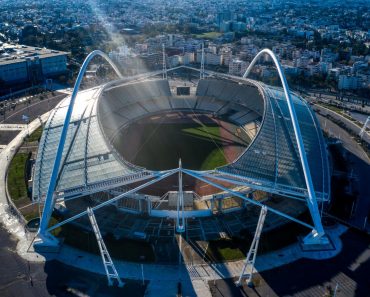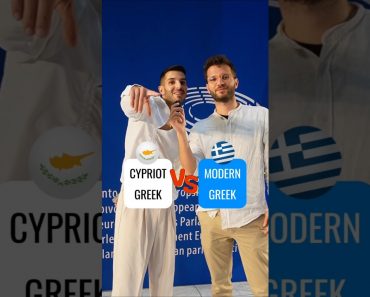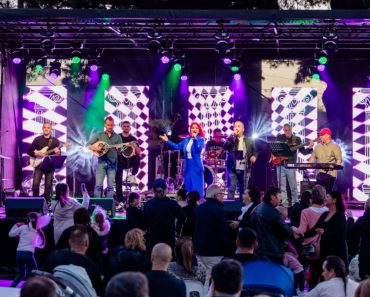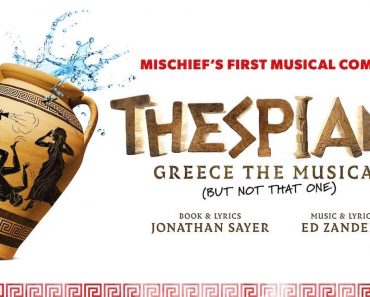A mystical concert on the uninhabited island of Keros returned to the scene after 5,000 years to honour the “first musicians” discovered there.
The famous Cycladic figurines of the “Harpist” and the “Flutist” were created during the early Bronze Age, at a time when people from across the Cyclades would flock here; a cultural artistic hub and perhaps even the first maritime sanctuary in the world.
The few spectators who were invited at the last moment, to witness, Five Millennia of Hellenic Sound, were transfixed by the unique performances of Greek and international musicians, but also by the quiet energy of the land, that has intrigued archaeologists for decades -ever since the mystery of the extraordinary number of broken marble figurines captured the world’s imagination.
Directed by Michail Marmarinos, the Keros concert in September, was the closing act of the 10th Anniversary of the Koufonisia Classical Music Festival, and the vision of renowned conductor and pianist Kornilios Michailidis, the festival’s founder and artistic director.
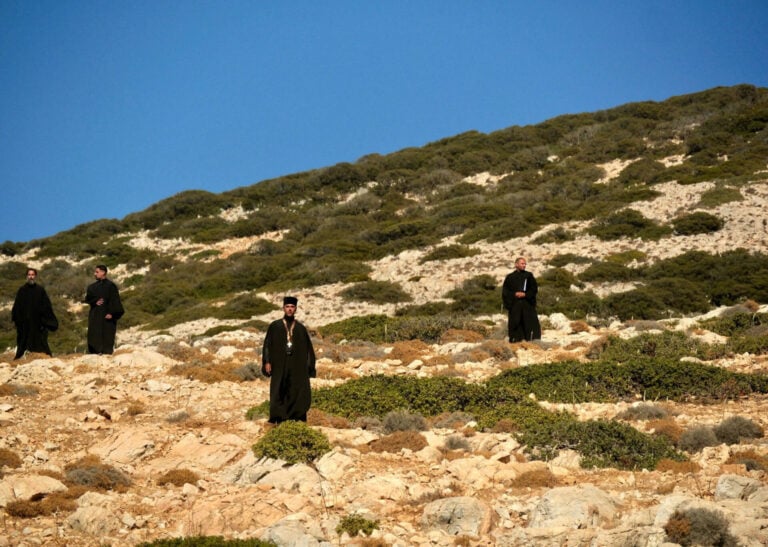
“For me, it was one of the most moving and significant experiences I’ve ever had – as a musician and as an organizer — throughout all these years. It was certainly one of the most difficult things I’ve ever done, and at the same time, one of the most beautiful,” Kornilios Michailidis told Neos Kosmos.
Although Keros lies just two nautical miles from Ano Koufonisi, reaching it is anything but simple. With no port and a rocky shoreline, it can only be approached by fishing boats when the north wind allows. Uninhabited since the late 1960s and declared an archaeological site under strict protection, the island “opens” only with special permission from the Ephorate of Antiquities of the Cyclades.
“I was in awe that we had made it there despite the difficulties. It seemed unbelievable that we had pulled it off,” Michailidis continues.”A huge weight was lifted the moment I saw the audience arriving. It was the weight of two years of work for this particular concert, which almost didn’t happen because of the weather, but in the end found its place in the most unforgettable way.”
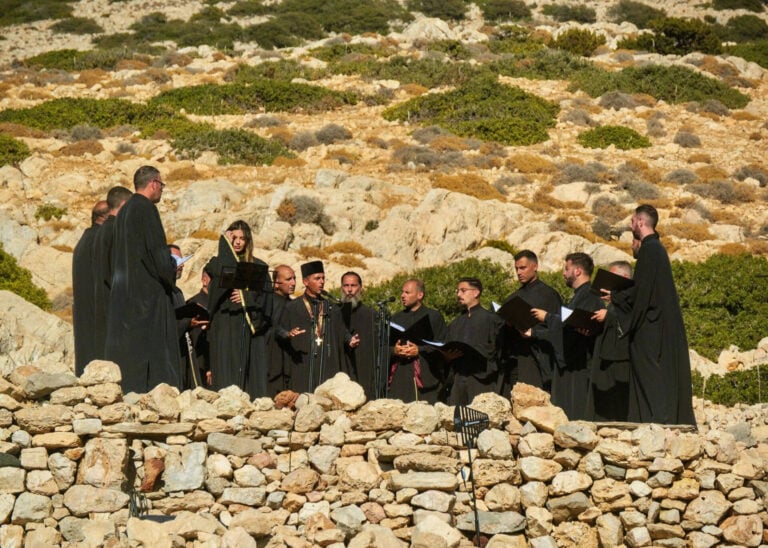
Retracing Hellenic Sound over five thousand years
For its 10th Anniversary, the festival’s organisers retraced Greek sound through the centuries, highlighting some of the most significant aspects of Greek, or Greek-inspired creation, through seven distinct concerts, culminating in the landmark performance on Keros.
Kornilios Michailidis, curated a musical journey from antiquity to the 20th century: from ancient chants and Byzantine hymns to traditional laments, and then into the modern age with works by Iannis Xenakis and Giorgos Koumendakis. Ancient Greek hymns — the Delphic Hymn to Apollo, the Hymn to the Muse and Calliope, and Seikilos’ Epitaph — were performed on faithful replicas of ancient instruments such as the diaulos, harp, and lyre. The chanting of poetic fragments of Orphic hymns added yet another layer of gravity to the whole experience.
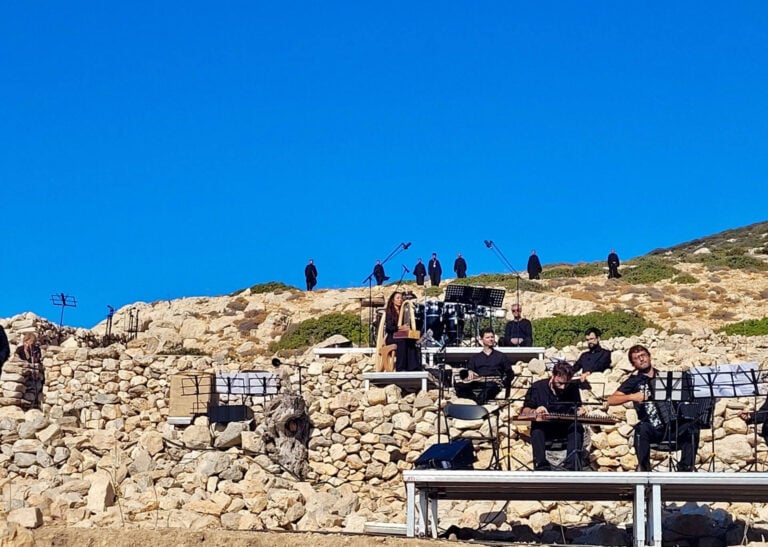
The legacy of Colin Renfrew
The concert on Keros, inspired by the famous Cycladic figurines of the “Harpist” and the “Flutist” was dedicated to the late archaeologist and philhellene Lord Colin Renfrew. He first stepped on this remote island as a graduate student in 1963 and went on to become a pioneering archaeologist renowned for his groundbreaking research on the Cyclades and Aegean prehistory. For the last two decades of his life, he focused on solving the mystery of an enigmatic ancient ritual that took place on Keros.
Renfrew not only provided the most plausible explanation for the thousand or more broken fragments of Cycladic marble figures, but alongside Michael Boyd, their team also uncovered extraordinary evidence of early urban life during the Bronze Age (around 2800 BC to 2200 BC).
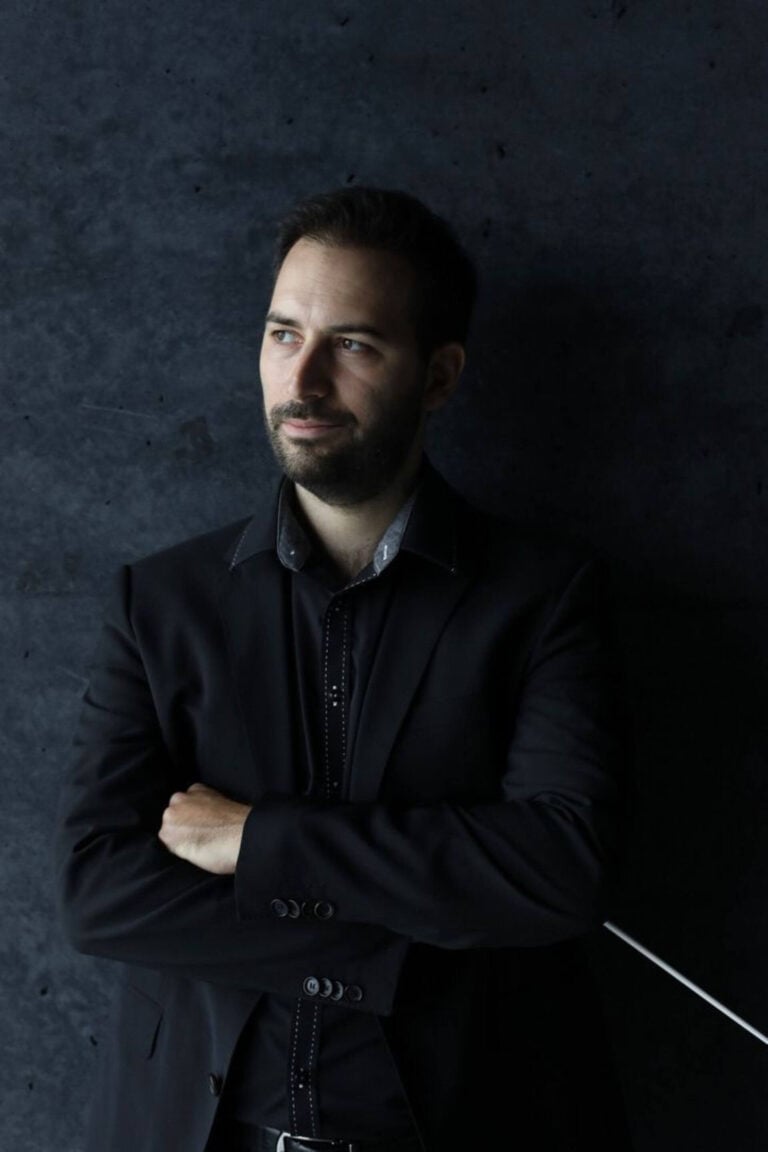
“We are in a region that in antiquity was a cradle of culture for the entire Aegean,” Michailidis said. “The island of Keros, opposite Koufonisi, remains a focal point of excavations and research. What Colin Renfrew has done for Greece through his lifetime is incredibly important, and excavations continue today under Michael Boyd. We haven’t seen everything yet! What will come to light in the coming years will be remarkable.”
The most recent excavation, completed in 2018, revealed impressive stairways, drainage systems, and stone-built structures, evidence of sophisticated urban architecture unprecedented for the period. The settlement, on what is now the small island of Daskalio, was once linked by a narrow causeway to Kavos, on the west of Keros, where vast quantities of broken marble sculptures and vessels were ritually deposited over some 500 years.
Renfrew believed that Keros served as a pan-Cycladic sanctuary, where broken figurines and pottery were intentionally deposited, signaling complex religious practices. He was able to prove that these artifacts were purposefully broken elsewhere and brought to Keros, indicating the island’s special symbolic status in the Cycladic world.
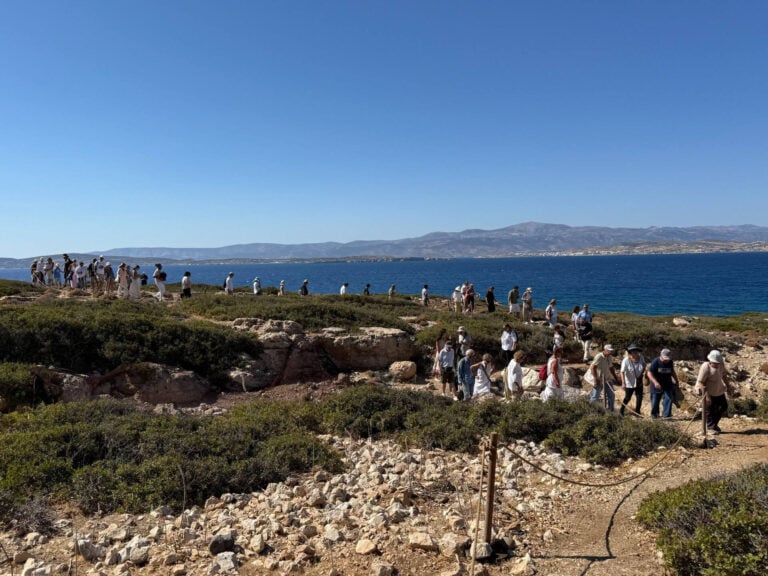
A cultural rebirth in the Small Cyclades
As archaeologists unearth the glorious past of Keros, a new era of culture has taken root on the neighboring island of Koufonisi with the founding of the Koufonisia Classical Music Festival 10 years ago.
Michailidis, whose family of musicians has spent summers on Koufonisi for over 30 years, recalls how it all started.
“Through the years we would organise concerts on the island on an ad hoc basis. In 2016, we decided to establish it formally as a festival.”
Today, the festival draws visitors from across Greece and abroad. Alongside concerts, an educational program offers the island’s children subsidised music lessons in piano and guitar, with teachers traveling weekly from Athens and Naxos. Children are even taken to Athens for cultural experiences, funded by the festival.
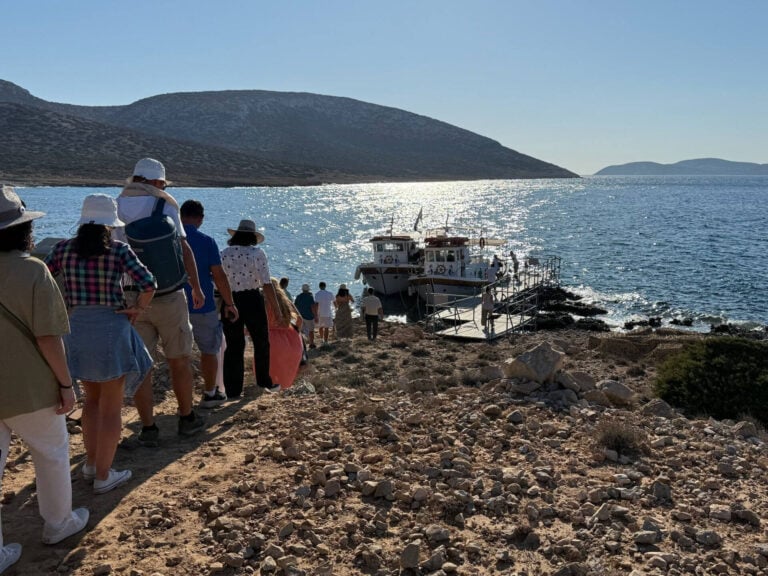
This year’s anniversary event, particularly the landmark concert on Keros, received widespread publicity and attracted distinguished guests from near and far.
Although initially planned as a livestream without an audience, a small group of locals, officials, and supporters was ultimately admitted, Michailidis explains. “The weather prevented the livestream, but the entire concert was filmed and will soon be broadcast worldwide.”
The concert was also performed in Koufonisi so the wider community could share in the experience.
“Organising the festival is a huge amount of work for us, almost a full-time job. And it is something we do voluntarily as a family, through a non-profit organisation. But is is an experience that makes us all richer. In the sense of moral satisfaction it fills us deeply.”
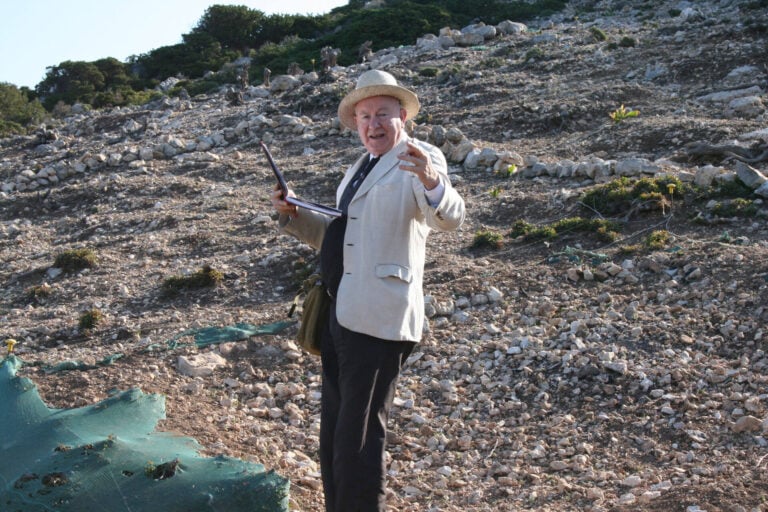
“Music speaks to everyone”
Among the many moments that have stayed with him, one in particular stands out. Before the festival was officially founded, Michailidis once performed Beethoven’s last three sonatas on the island.
“They are difficult pieces, not easily accessible. And yet I went ahead with it. To my surprise, it turned out to be one of the best concerts I’ve ever given in terms of audience response. The audience hardly breathed; they were utterly absorbed. Not only did they stay until the very end, but for years afterwards, I’d walk the streets of the island and people would stop to remind me of that concert. Many of them had never heard a piano in their lives, had no exposure whatsoever.”
He says it was a staggering experience. “It proved to me, that classical music truly speaks to everyone. Under the right conditions, it can genuinely reach everyone, especially those with a pure and open heart and the curiosity to embrace something new. That concert was, in fact, the reason the festival was born.”
Even though the family is not originally from the island, Michailidis says they feel like locals.
“In recent years, it’s not a holiday anymore — we go to work for the festival. And yet it rejuvenates us.”
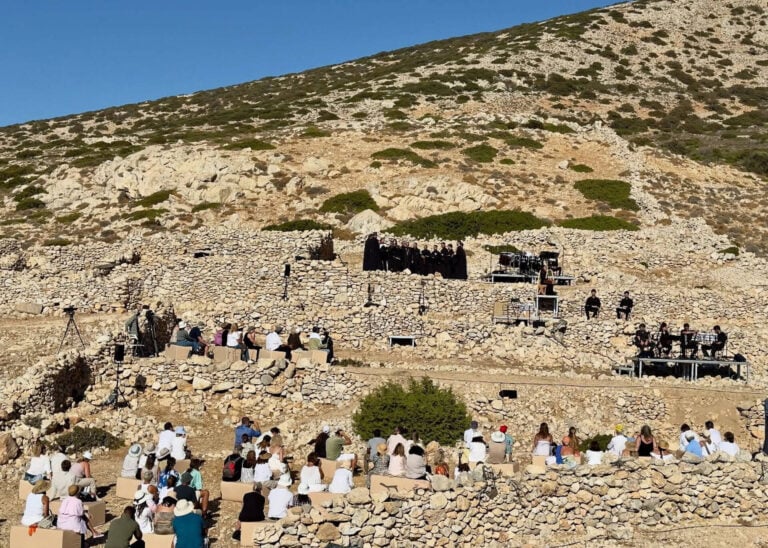
Even though the island has radically changed over the 30 years, “the image that remains with us is the place we fell in love with, in all its purity and beauty.”
In that sense, the festival is a reminder of all that.
“Music in general, but especially classical, with its natural, acoustic transmission, fits so well with the landscape, the energy of the place, the character of the island. Even though Koufonisi has no historical link to classical music (its tradition is more tied to folk music), I would say it resonates deeply with the very nature of the island.”
The festival has already far exceeded all their expectations and dreams, especially after this year’s dedication to ‘Five Millennia of Hellenic Sound’ with the concert on Keros. But there are still many ideas formulating for the future, with a greater emphasis on the educational side of their project, and improving the infrastructure. “We’d like to build an amphitheatre, for example, to make the production of concerts easier both for the audience and for the musicians.”
“Our goal is that nothing should be missing from the island, nothing that we take for granted in Athens. We want culture to be a point of reference for the islanders, just as it was in antiquity. Beyond beaches and tavernas, we want something of lasting value. That’s our contribution.”
Reflecting on the concert’s dedication, Michailidis adds that “Lord Colin Renfrew belongs to the island of Keros, because of his life’s work for Greece, work now continued under Michael Boyd. We are yet to see the full significance of this region in prehistory. Renfrew was a true gentleman, in every sense, but in a modest and humble way. A man with great humour.”


